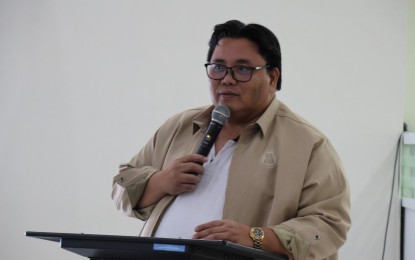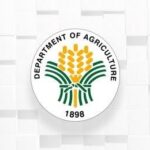LEGAZPI CITY – The National Irrigation Administration (NIA) 5 (Bicol) has waived PHP246 million in unpaid Irrigation Service Fees (ISF), benefiting 2,230 farmers across the region’s six provinces.
The initiative has eased financial burdens for affected farmers and enabled them to maximize agricultural productivity.
“Waiving unpaid Irrigation Service Fees goes beyond financial assistance. It’s a meaningful step toward empowering our farmers to sustain their livelihoods and contribute to food security without the burden of past financial obligations. This reflects the essence of the Free Irrigation Service Act… giving back to those who feed the nation,” the statement noted.
This action is part of the ongoing implementation of Republic Act 10969, known as the Free Irrigation Service Act (FISA), which provides for the waiver of unpaid irrigation service fees, loans, and penalties for farmers owning no more than eight hectares of land.
The president of the Confederation of Irrigators’ Associations of Bicol expressed appreciation for NIA’s continued support for farmers and encouraged fellow irrigators to take advantage of the waiver program.
“We encourage our members to spread awareness and help fellow farmers who haven’t yet applied for this program. This opportunity brings new hope and allows us to focus on improving production and livelihoods,” the statement added.
National Irrigation Administration
The National Irrigation Administration (NIA) is a Philippine government agency established in 1963 to spearhead the development and management of irrigation systems across the country. Its primary mission is to provide reliable irrigation services to enhance agricultural productivity and support the nation’s food security. Through its history, the NIA has been instrumental in constructing and maintaining dams, canals, and other water infrastructure to support Filipino farmers.
Bicol
Bicol is a region in the southeastern part of Luzon, Philippines, known for its stunning natural landscapes, including the iconic perfect cone of Mayon Volcano. Historically, it was one of the first areas colonized by Spain, with settlements like Naga City becoming important ecclesiastical centers. The region is also famous for its rich cultural traditions and spicy cuisine, most notably dishes made with siling labuyo (bird’s eye chili) and gata (coconut milk).
LEGAZPI CITY
Legazpi City is a bustling urban center in the Philippines, located in the province of Albay on the island of Luzon. It is most famous for its iconic and perfectly conical Mayon Volcano, one of the country’s most active volcanoes. The city itself was officially founded in 1616 and named after Miguel López de Legazpi, the Spanish conquistador who led the first colonial expedition to the Philippines.
Irrigation Service Fees
Irrigation Service Fees are not a physical place or cultural site, but a financial mechanism used to fund the operation and maintenance of irrigation systems. Historically, many systems were funded by governments, but the introduction of fees transfers this responsibility to water users to improve sustainability and efficiency. This practice is common in agricultural communities worldwide to ensure the long-term viability of essential water infrastructure.
Free Irrigation Service Act
The Free Irrigation Service Act is not a physical place or cultural site, but a significant law in the Philippines. Enacted in 2017, it exempts farmers with landholdings of eight hectares or less from paying irrigation service fees. This landmark legislation aims to reduce production costs for small farmers and increase their income and agricultural productivity.
Republic Act 10969
“Republic Act 10969” is not a place or cultural site, but a national law in the Philippines. Also known as the “Free Irrigation Service Act,” it was signed in 2017 and mandates the provision of free irrigation service to farmers who own land of eight hectares or less. The law’s history is rooted in agricultural reform efforts aimed at reducing production costs and supporting the livelihood of smallholder farmers.
Confederation of Irrigators’ Associations of Bicol
The Confederation of Irrigators’ Associations of Bicol is a regional federation of farmer-led organizations in the Bicol region of the Philippines. It was established to coordinate and manage communal irrigation systems, empowering local farmers to collectively manage their water resources for sustainable agriculture. Its history is rooted in community-led efforts to improve agricultural productivity and secure water access for rice farming in the region.
Free Irrigation Service Act (FISA)
The Free Irrigation Service Act (FISA) is a landmark Philippine law enacted in 2019 that provides free irrigation services to farmers. It was established to alleviate the financial burden on agricultural workers by abolishing irrigation service fees previously collected from them. This act is part of the government’s efforts to support the farming sector and boost national food security.






